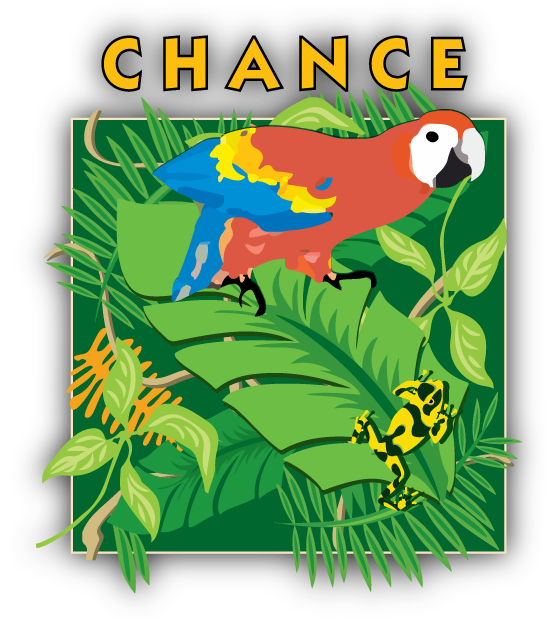How do I Apply?
To apply for a CHANCE field course, please visit the appropriate field course website to complete the online application form under the “Application” link on the official website for that course.
In addition to completing the online application form, the following is also required: 1) a one page essay highlighting why you wish to take this course and how it will benefit your career goals; 2) a letter of recommendation; and 3) for students, you will need an unofficial copy of your student transcript.
Your Judicial (if applicable) and Academic Records will be reviewed as part of the application process.
Deadlines for applications are listed on each field course website, as is information on vaccinations, passports, visas, and deposits.
Is there a payment plan?
Yes, an official payment plan will be sent to you. Two or three separate payments will be due throughout the spring or summer semester (depending on departure set for program).
Are scholarships available?
There are numerous university wide scholarship opportunities that may be available to assist with the summer costs of a CHANCE field course (https://science.psu.edu/current-students/education-abroad/scholarships). Take quality time to apply for all possible scholarships by their respective deadlines.
You should also reach out to your own college administration, especially the Office of International Programs within your college. There is also a wealth of information about external scholarships on the Global Programs website, which was referenced via the application as well. A great place to start is here with the Easy Guide .
The Student Engagement Network also, and especially, provides grants to students. The information for the final cycle of grants is found at https://sen.psu.edu/grant-program/. The application deadline very from semester to semester. Students can each request $1000 or $2000 for the grant. Each application will be evaluated on its own merits. Many past CHANCE fellows have been funded through this route.
Please take a careful look at each of these opportunities, apply for as many as possible, and again, make the deadlines!
If accepted into a CHANCE field course, how do I register?
Penn State undergraduates who are accepted into a field course will be officially registered through the Penn State Lehigh Valley Registrar Office for the spring semester (3 credits) and the summer semester (0.25-1 credit) of that academic year.
Is tuition associated with the price of a CHANCE field course?
Penn State undergraduate and graduate students are required to pay for 0.25 - 1 credit hour for the CHANCE field course (practicum) component of each packaged program. See "Cost" link on each field course program website.
Do I need a passport, Visa, and vaccinations?
Passports, Visas, and immunizations vary as to whether the selected field course is international or national. This information is provided under the “Application” link for each CHANCE field course.
How many participants are accepted into each course?
Course size depends on location. On average, 20 participants are selected per course. At least 2 Penn State professors are present at all times in the field.
Who are your instructors?
CHANCE instructors are some of the most talented and interesting Penn State professionals you’ll have the chance to meet. Each comes with a research expertise that helps define and carry out the field-based activities and projects set for each course. For more information, read their biographies on the “Faculty” link for each course website.
Please note that select faculty, field conservationists, scientists, and non-governmental and governmental leaders are also invited to join each CHANCE course during its field course practicum.
What exactly is required of a participant who has registered for a CHANCE field course program?
Each CHANCE field course program consists of two courses which are collectively divided into three sessions:
1. PRE-FIELD: Preparation
2. PRACTICUM: Experience
3. POST-FIELD: Synthesis
The pre-field session consists of seven, two-hour long, virtual classes offered by your Penn State instructors via Zoom. These classes over unique and engaging pedagogical methods and assignments that allow prepare participants for upcoming field-based experiences and research.
The practicum component consists of a twelve to thirty-day excursion throughout selected areas of the world. While in these areas, students will evaluate the anthropogenic issues that are affecting the biodiversity of select ecosystems, and how this loss of life is affecting the economic development, human livelihood(s), natural resources, conservation efforts, cultural dimensions, and sustainability goals set-forth by the United Nations. Whether working to protect an endangered species in Costa Rica or Panama, collecting and interpreting data on the water pollution of China’s third largest freshwater lake, or evaluating the microplastic levels in the trophic levels of the Mediterranean Sea (Greece), hands-on research activities are an essential part of this component. Discussion group participation, journaling, and a group-based, oral research presentation at an International Undergraduate Research Symposium held while abroad are also required.
The post-field session consists of the completion of post trip questions, reflections, and surveys.
See "Outline" link for each CHANCE field course for more information.
All students, faculty, and staff who are traveling outside of the United States on university business, with university funds or with a university organization are covered by Penn State's international health insurance. The link below provides an overview of the insurance coverage and where to access information.
Do I need medical insurance?
Is travel insurance required?
No. Travel insurance is not required.
Attendance and regular participation are required. Behavioral issues cited in the EA Conduct Standards Agreement as the PSU Code of Conduct apply to your classroom performance as well as to attendance in class or on field trips. Infractions of the academics agreement will have a negative impact on your grade and could result in an official CODE OF CONDUCT VIOLATION NOTICE being sent to the Assistant Vice President for Student Affairs.

